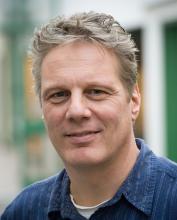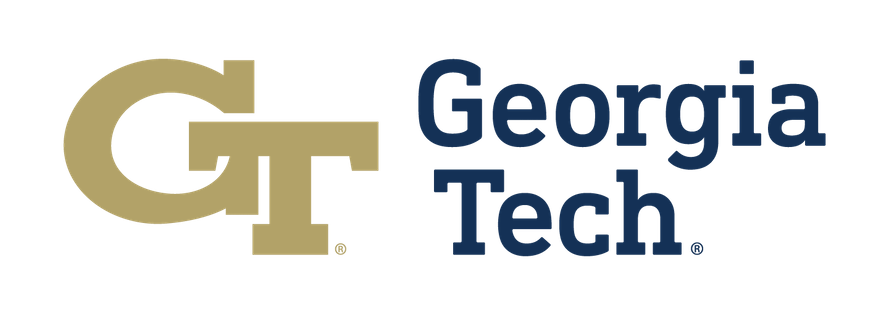
Professor, team leader
+1 (404) 385-7069
CODA building 13th floor
Research Area: Computational Imaging; Machine Learning; PDE-constrained Optimization; Uncertainty Quantification; Randomized Linear Algebra
About me: Felix J. Herrmann graduated from Delft University of Technology in 1992 and received his Ph.D. in engineering physics from that same institution in 1997. After research positions at Stanford University and the Massachusetts Institute of Technology, he became in 2020 faculty at the University of British Columbia. In 2017, he joined the Georgia Institute of technology where he is a Georgia Research Alliance Scholar Chair in Energy, cross-appointed between the Schools of Earth & Atmospheric Sciences, Computational Science & Engineering, and Electrical & Computer Engineering. His cross-disciplinary research program spans several areas of computational imaging including seismic, and more recently, medical imaging. Dr. Herrmann is widely known for tackling challenging problems in the imaging sciences by adapting techniques from randomized linear algebra, PDE-constrained and convex optimization, high-performance computing, machine learning, and uncertainty quantification. Over his career, he has been responsible for several cost-saving innovations in industrial time-lapse seismic data acquisition and wave-equation based imaging. In 2019, he toured the world presenting the SEG Distinguished Lecture "Sometimes it pays to be cheap – Compressive time-lapse seismic data acquisition". In 2020, he was the recipient of the SEG Reginald Fessenden Award for his contributions to seismic data acquisition with compressive sensing. At Georgia Tech, he leads the Seismic Laboratory for Imaging and modeling and he is co-founder/director of the Center for Machine Learning for Seismic (ML4Seismic), designed to foster industrial research partnerships to drive innovations in artificial-intelligence assisted seismic imaging, interpretation, analysis, and time-lapse monitoring.
About me: Felix J. Herrmann graduated from Delft University of Technology in 1992 and received his Ph.D. in engineering physics from that same institution in 1997. After research positions at Stanford University and the Massachusetts Institute of Technology, he became in 2020 faculty at the University of British Columbia. In 2017, he joined the Georgia Institute of technology where he is a Georgia Research Alliance Scholar Chair in Energy, cross-appointed between the Schools of Earth & Atmospheric Sciences, Computational Science & Engineering, and Electrical & Computer Engineering. His cross-disciplinary research program spans several areas of computational imaging including seismic, and more recently, medical imaging. Dr. Herrmann is widely known for tackling challenging problems in the imaging sciences by adapting techniques from randomized linear algebra, PDE-constrained and convex optimization, high-performance computing, machine learning, and uncertainty quantification. Over his career, he has been responsible for several cost-saving innovations in industrial time-lapse seismic data acquisition and wave-equation based imaging. In 2019, he toured the world presenting the SEG Distinguished Lecture "Sometimes it pays to be cheap – Compressive time-lapse seismic data acquisition". In 2020, he was the recipient of the SEG Reginald Fessenden Award for his contributions to seismic data acquisition with compressive sensing. At Georgia Tech, he leads the Seismic Laboratory for Imaging and modeling and he is co-founder/director of the Center for Machine Learning for Seismic (ML4Seismic), designed to foster industrial research partnerships to drive innovations in artificial-intelligence assisted seismic imaging, interpretation, analysis, and time-lapse monitoring.
-
, “Towards foundation models for subsurface priors and posteriors”, in Workshop on Scientific Machine Learning 2025, Austin, TX, 2025.
-
, “Context-aware Digital Twin for Underground Storage”, in Artificial Intelligence and Digital Twins for Earth Systems 2025, Austin, TX, 2025.
-
, “Well2Flow: Reconstruction of reservoir states from sparse wells using score-based generative models”, in International Meeting for Applied Geoscience and Energy, 2025.
-
, “Reconstructing reservoir states from multimodal data via score-based generative models”, in ML4SEISMIC Partners Meeting, 2025.
-
, “CO2 Enhanced Oil Recovery Through Digital Shadow Modeling”, in International Meeting for Applied Geoscience and Energy, 2025.
-
, “A reduced-order derivative-informed neural operator for subsurface fluid-flow”, in International Meeting for Applied Geoscience and Energy, 2025.
-
, “Time-lapse full-waveform inversion with uncertainty quantification”, in International Meeting for Applied Geoscience and Energy, 2025.
-
, “Power-scaled Bayesian inference with score-based generative models”, in International Meeting for Applied Geoscience and Energy, 2025.
-
, “Sensitivity-aware rock physics enhanced digital shadow for underground-energy storage monitoring”, in International Meeting for Applied Geoscience and Energy, 2025.
-
, “Efficient and scalable posterior surrogate for seismic inversion via wavelet score-based generative models”, in International Meeting for Applied Geoscience and Energy, 2025.
-
, “Full-waveform variational inference with common-image gathers”, in International Meeting for Applied Geoscience and Energy, 2025.
-
, “Attention Please: Getting the Most from CIGs with Learned Summary Statistics”, in International Meeting for Applied Geoscience and Energy, 2025.
-
, “Context- and uncertainty-aware Digital Twins for Integrated Reservoir Management”, in SEG/SPE 2nd Integrated Reservoir Characterization, Surveillance, and Management Workshop: Advances and Challenges, 2025.
-
, “SAGE — Subsurface foundational model with AI-driven Geostatistical Extraction”, in EAGE Workshop, 2025.
-
, “Seismic monitoring of CO2 plume dynamics using ensemble Kalman filtering”, Transactions on Geoscience and Remote Sensing, 2025.
-
, “An uncertainty-aware Digital Shadow for underground multimodal CO2 storage monitoring”, Geophysical Journal International, 2025.
-
, “ASPIRE: Iterative Amortized Posterior Inference for Bayesian Inverse Problems”, Inverse Problems, vol. 41, 2025.

